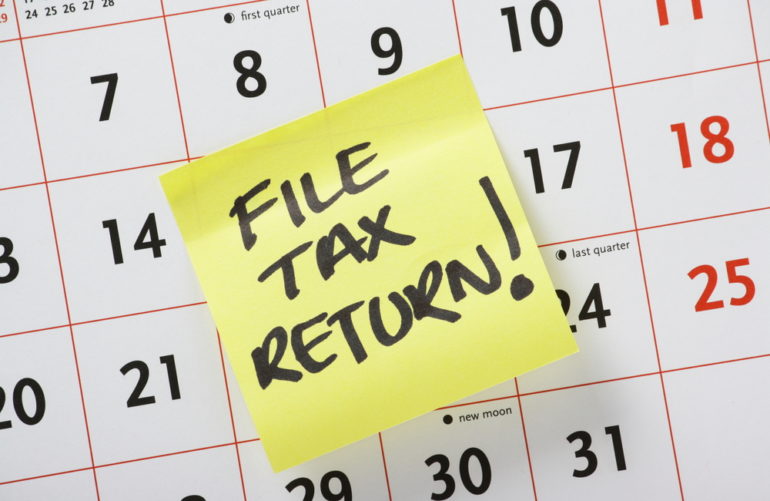With just a couple of weeks to go before the Self-Assessment deadline, time is running out if you’re one of the millions of small business owners across the UK who has to file a tax return.
But as you start preparing to tackle your Self-Assessment return, are there any common traps to watch out for? Here, Emily Coltman FCA, Chief Accountant to FreeAgent – which makes award-winning cloud accounting software for freelancers, micro-businesses and their accountants – gives her top tips for avoiding the most common Self-Assessment errors.
Omitting reference numbers – or using the wrong ones
You need to quote your unique tax reference (UTR) on your tax return – which is the 10 numerical digit-long number included on paperwork that you receive from HMRC such as a “Notice to Complete a Tax Return”. If you don’t know your UTR, you need to phone HM Revenue & Customs’ Self-Assessment Helpline and ask them to post it to you – but remember that they won’t give it to you over the phone, so don’t wait until the last minute!
Another common mistake is confusing your UTR with your National Insurance number. Make sure you don’t do this, otherwise you’ll be entering the wrong information into the “Tax Reference” field and HMRC may reject your tax return.
Not declaring all of your income
Your tax return needs to include all of the income you’ve earned during the year – not just what you’ve received via your main employment. That means you must include:
- If you’re a sole trader, any income that you invoiced, or for which you’d done the work, before 5th April 2017, but which your customers did not pay you for until after that date (unless you’re using the cash basis to prepare your accounts)
- All other sources of income – such as payment from a second job, interest earned on a savings account or rent from a property. Make sure you have all of the relevant paperwork for this income (including forms P60 and P11D from your employer and your bank interest certificates) and remember that these will all have to relate to the tax year 2016/17.
However, tax-free income – such as interest earned on an ISA – does not need to be included on your tax return.
Missing other important information
If you’re a sole trader, in addition to income, you also have to include important information about any expenditure that you have made for your business in the past year. This will include:
- All business costs, including anything you paid for yourself rather than from the business’s bank account. This also includes costs that you incurred before your business started to trade, as long as you spent the money no more than 7 years before the start of your business and the cost could have been included if you had incurred it after the start of your business (such as a subscription for membership to an industry body before you made your first sale).
- Assuming you don’t use the cash basis to prepare your accounts, you also need to include any large pieces of equipment (or capital assets) that you bought for your business. These don’t go in as day-to-day running costs but you may be able to claim capital allowances on them.
Failure to include these could result in you paying an incorrect amount of tax – so make sure you contact HMRC’s Self-Assessment Helpline for advice if you’re unsure whether or not you need to include a specific cost in your tax return.
Being unsure about your business expenses
Business expenses can be a tricky issue for small business owners, so make sure you know the rules before you include them in your tax return. You want to make sure you’re pay the right amount of tax – and this means ensuring you don’t try to claim tax relief on anything you’re not allowed to!
In particular, make sure you’re up to speed with the rules around business clothing, entertaining, food & drink, business use of home and travel expenses. You should be able to find this info on HMRC’s website or an alternative source of small business accounting information.
Skipping the final check-through
If you submit an incomplete tax return, HMRC may not accept it, so it’s a really good idea to do a final check just to make sure you haven’t missed any sections or left any information out.
Even just forgetting to click the confirmation box at the end of the form is almost certainly enough for HMRC to reject it, so pay close attention and review your work carefully – especially if you’re rushing to complete your tax return in the days (or hours) before the deadline.
Missing the deadline – and forgetting to pay
Your tax return must be submitted online by midnight on January 31st otherwise HMRC will automatically impose a £100 fine; even if you just miss the deadline by a few hours!
Once you’ve submitted your tax return, don’t get lulled into a false sense of security. There’s still one important step left, which is to actually PAY your tax! HMRC will charge interest if you do this late and will also impose penalties on late payment, so it’s important to pay your tax as soon as you can if you want to avoid getting hit with a hefty – and growing – fine!
Emily Coltman FCA is Chief Accountant to FreeAgent, which provides award-winning cloud accounting software for freelancers, micro-businesses and their accountants. Try it for free at www.freeagent.com


